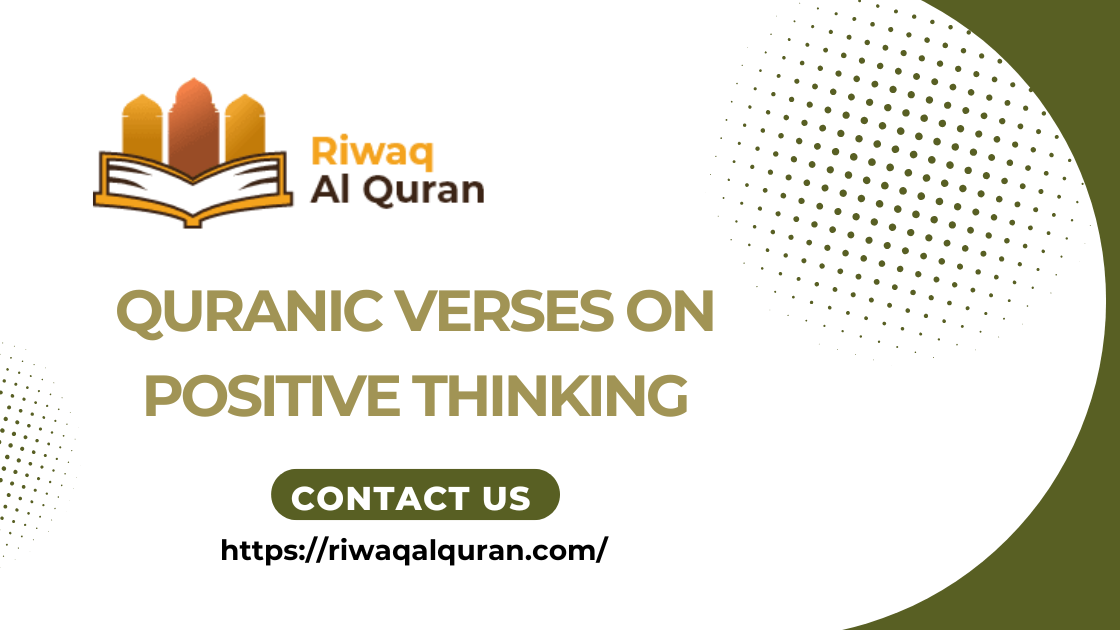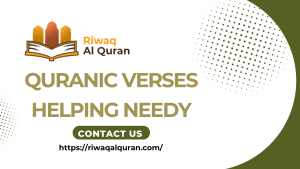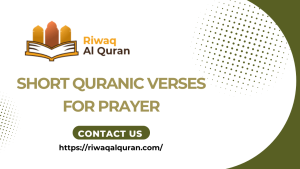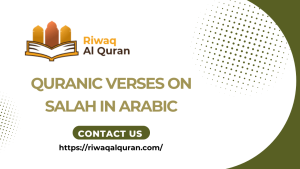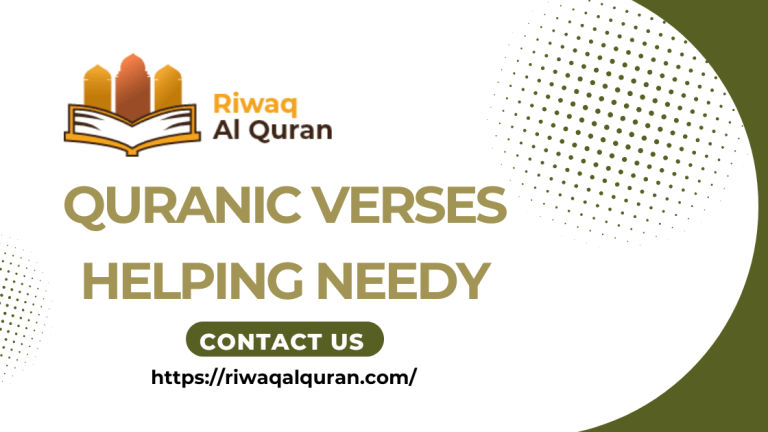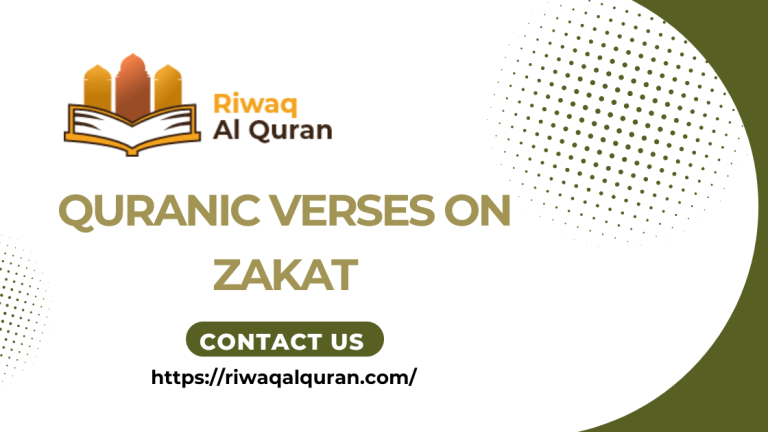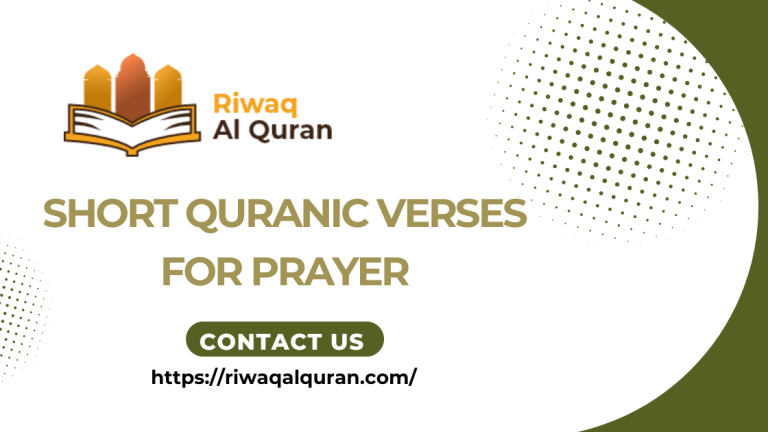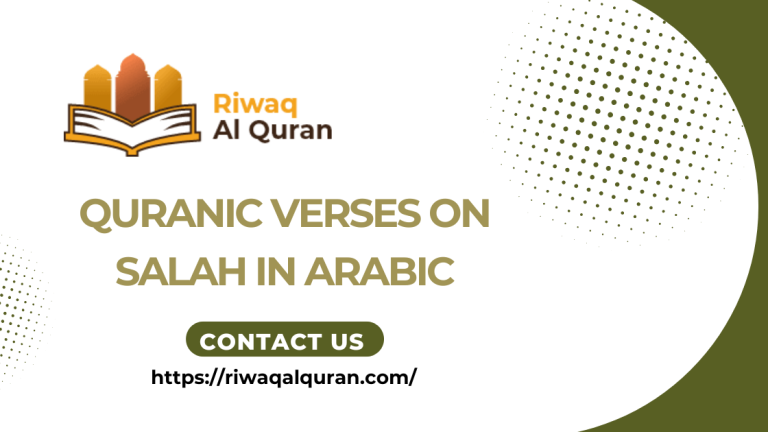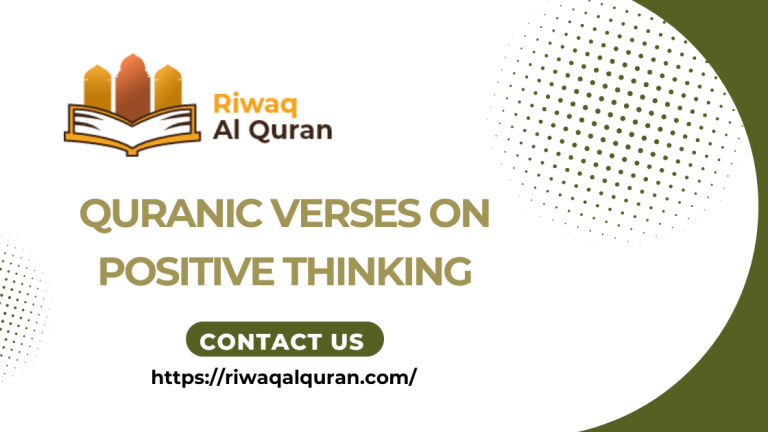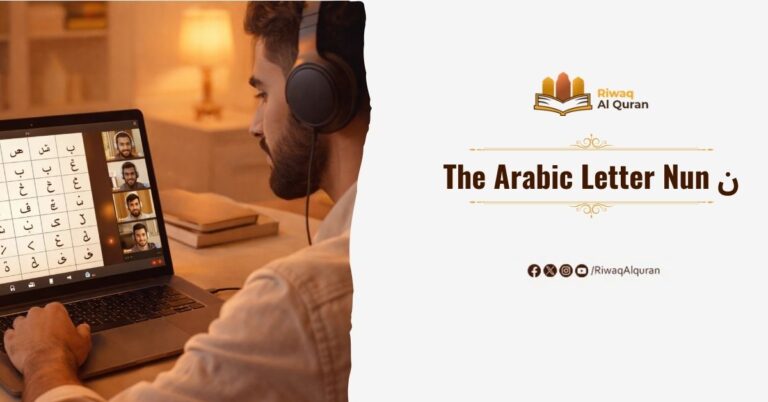Negative thoughts can quietly erode a believer’s connection to Allah. Yet the Quran — revealed as a complete guide for the human soul — addresses this struggle directly, offering powerful verses that rewire how a Muslim thinks, feels, and responds to life’s hardships.
These Quranic verses on positive thinking are not motivational quotes borrowed from self-help culture. They are divine statements that carry theological depth, psychological wisdom, and spiritual weight. Reflecting on them with understanding changes everything.
Table of Contents
1. Turn Completion Into Renewed Purpose
After hardship is promised ease in Surah Al-Inshirah, Allah follows with a direct command:
فَإِذَا فَرَغْتَ فَٱنصَبْ وَإِلَىٰ رَبِّكَ فَٱرْغَب
Fa-idhā faraghta fanṣab, wa ilā rabbika farghab
“So when you have finished [your duties], then stand up [for worship]. And to your Lord direct [your] longing.” (Al-Inshirah 94:7–8)
This verse teaches that positive thinking is not passive. It is followed immediately by action and by turning toward Allah. The believer is commanded: when one task ends, engage again. When hardship passes, do not idle — redirect your energy upward toward Allah.
This creates a continuous productive cycle. Rest in Allah’s promise, act with resolve, return to Allah — this is the Quranic rhythm for a life built on positivity and purpose.
At Riwaq Al Quran, our certified Azhari tutors guide students through exactly this kind of verse-by-verse contextual understanding in our Online Tajweed Classes, so that recitation becomes deeply meaningful rather than mechanical.
Enroll Now in the Best Online Tajweed Classes

2. Allah’s Promise of Ease After Hardship Is the Foundation of a Believer’s Mindset
Allah’s promise of ease after hardship is one of the most psychologically anchoring truths in the Quran. Before exploring individual verses, understand that positive thinking in Islam is not wishful optimism — it is tawakkul (reliance on Allah) grounded in His actual words.
فَإِنَّ مَعَ ٱلْعُسْرِ يُسْرًا إِنَّ مَعَ ٱلْعُسْرِ يُسْرًا
Fa-inna ma’al-‘usri yusraa, inna ma’al-‘usri yusraa
“For indeed, with hardship will be ease. Indeed, with hardship will be ease.” (Ash-Sharh 94:5–6)
Classical scholars of tafsir, including Imam Ibn Kathir, noted that “hardship” (al-‘usr) comes with the definite article al-, making it singular and specific. But “ease” (yusraan) is indefinite and repeated — meaning the ease that follows is broader and greater than the hardship itself.
This grammatical insight from Arabic morphology completely reframes difficulty. A believer who understands this verse does not merely tolerate hardship. They expect relief as a certainty from Allah, not a possibility.
At Riwaq Al Quran, our Online Quran Memorization Course teaches students to engage with verses at this depth — understanding meaning, context, and linguistic structure — so memorization becomes an act of genuine reflection, not rote repetition.
Start your Hifz journey with a Free Trial

3. Maintaining Hope When Circumstances Feel Impossible
Surah Yusuf is described by the Quran itself as ahsan al-qasas — the most beautiful of narratives. It is a masterclass in maintaining hope when circumstances suggest otherwise.
وَلَا تَيْأَسُوا مِن رَّوْحِ اللَّهِ ۖ إِنَّهُ لَا يَيْأَسُ مِن رَّوْحِ اللَّهِ إِلَّا الْقَوْمُ الْكَافِرُونَ
Wa laa tay’asoo min rawhi-llah. Innahu laa yay’asu min rawhi-llahi illal-qawmul-kaafirun
“And do not despair of relief from Allah. Indeed, no one despairs of relief from Allah except the disbelieving people.” (Yusuf 12:87)
The verse does not merely encourage hope — it connects despair to a specific theological failure. This framing gives the believer a powerful cognitive anchor: hopelessness is not a neutral emotional state; it contradicts the very nature of faith in Allah’s mercy.
| Emotional State | Quranic Reframe | Theological Basis |
| Despair about the future | Allah’s mercy is always present | Surah Yusuf 12:87 |
| Anxiety about provision | Allah is Al-Razzaq (The Provider) | Surah Hud 11:6 |
| Fear of being alone | Allah is closer than your jugular vein | Surah Qaf 50:16 |
| Grief after loss | Patience brings divine companionship | Surah Al-Baqarah 2:153 |
4.The Quran Reframes Tribulation as a Divine Announcement of Reward for the Patient
In the following verse notice Allah uses the word bashshir — “give glad tidings.” This is the vocabulary of celebration, not consolation.
وَلَنَبْلُوَنَّكُم بِشَيْءٍ مِّنَ الْخَوْفِ وَالْجُوعِ وَنَقْصٍ مِّنَ الْأَمْوَالِ وَالْأَنفُسِ وَالثَّمَرَاتِ ۗ وَبَشِّرِ الصَّابِرِينَ
Wa lanabluwannakum bishay’im minal-khawfi wal-joo’i wa naqsim minal-amwaali wal-anfusi wath-thamaraat. Wa bashshiris-saabireen
“And We will surely test you with something of fear and hunger and a loss of wealth and lives and fruits, but give good tidings to the patient.” (Al-Baqarah 2:155)
The Quran frames the patient believer not as someone enduring punishment, but as someone receiving divine announcement of reward.
5. Tawakkul as Active Trust Rather Than Passive Surrender
Tawakkul is frequently misunderstood as passivity. This verse clarifies otherwise. The Arabic baalighu amrih — “accomplishing His purpose” — communicates active divine movement. The believer trusts, and Allah acts. This is a partnership, not surrender.
وَمَن يَتَوَكَّلْ عَلَى اللَّهِ فَهُوَ حَسْبُهُ ۚ إِنَّ اللَّهَ بَالِغُ أَمْرِهِ
Wa man yatawakkal ‘alaa-llahi fa-huwa hasbuh. Inna-llaha baalighu amrih
“And whoever relies upon Allah — then He is sufficient for him. Indeed, Allah will accomplish His purpose.” (At-Talaq 65:3)
The psychological impact of true tawakkul is well-documented in Islamic scholarship. Ibn Al-Qayyim described it as the heart’s full reliance on Allah while the limbs continue to move. That combination is the Quranic model of positive, action-oriented faith.
Experience Riwaq Al Quran Classes
Watch real moments from our live sessions at Riwaq Al Quran and see how we bring learning to life. These clips highlight our interactive, student-focused approach designed to keep learners engaged, motivated, and actively involved in every step of their educational journey.
6. Gratitude Increases What You Already Have
Gratitude is the Quran’s most direct mechanism for increasing blessing. This is not abstract spirituality — it is a stated divine law, and its source is one of the most memorable Quranic verses on positive thinking:
وَإِذْ تَأَذَّنَ رَبُّكُمْ لَئِن شَكَرْتُمْ لَأَزِيدَنَّكُمْ
Wa idh ta’adhdhana rabbukum la’in shakartum la’azīdannakum
“And when your Lord proclaimed: ‘If you are grateful, I will surely increase you.'” (Ibrahim 14:7)
The linguistic emphasis here is striking. The phrase la’azīdannakum uses a doubled lam of emphasis — a form in Arabic grammar (tawkid) reserved for absolute certainty.
Practicing gratitude in the Islamic framework means verbalizing Alhamdulillah, reflecting on blessings consciously, and redirecting attention from lack toward abundance. This is the Quranic prescription for a positive, faith-rooted mindset.
7. Inner Transformation Must Precede Any External Change
This principle is one of the most empowering Quranic verses on positive thinking for anyone feeling stuck or helpless:
إِنَّ ٱللَّهَ لَا يُغَيِّرُ مَا بِقَوْمٍ حَتَّىٰ يُغَيِّرُوا۟ مَا بِأَنفُسِهِمْ
Innallāha lā yughayyiru mā biqawmin ḥattā yughayyirū mā bi’anfusihim
“Indeed, Allah will not change the condition of a people until they change what is in themselves.” (Ar-Ra’d 13:11)
The depth of this verse lies in the word anfus — often translated as “themselves” but more precisely meaning the inner self: intentions, thoughts, spiritual state. External change, according to this verse, follows internal change — not the other way around.
| Type of Change | Quranic Principle | Who Initiates It |
| External circumstances | Follows internal change | Allah (after human effort) |
| Inner state and intention | Must change first | The individual believer |
| Community transformation | Requires collective internal shift | The community itself |
This is the Quran teaching cognitive and spiritual transformation as a prerequisite to improved circumstances. A believer who internalizes this verse stops waiting for the world to change and begins with the only thing under their control: their own inner state.
Working with qualified Azhari tutors at Riwaq Al Quran provides the individualized attention needed to truly understand verses like this one, with flexible scheduling available 24/7.
Connect with Riwaq’s Azhari tutors
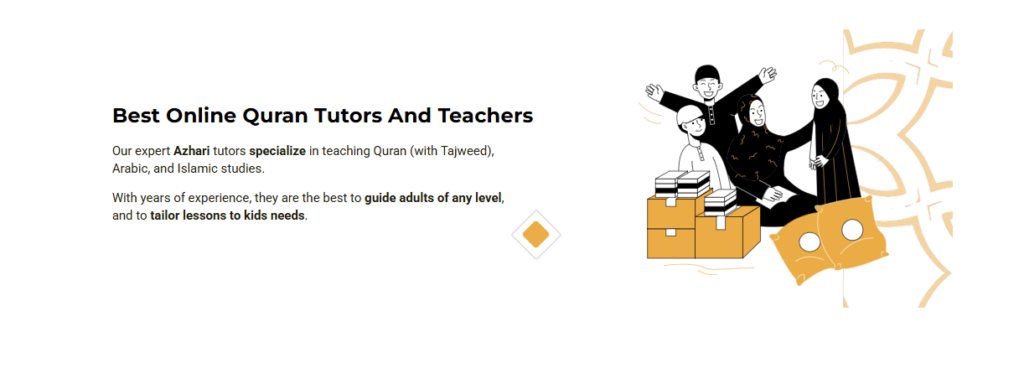
8. Dhikr is the True Remedy for Anxiety and Restlessness
The word ṭuma’nīnah (tranquility or rest) is a technical Tajweed term as well as a psychological one.
ٱلَّذِينَ ءَامَنُوا۟ وَتَطْمَئِنُّ قُلُوبُهُم بِذِكْرِ ٱللَّهِ ۗ أَلَا بِذِكْرِ ٱللَّهِ تَطْمَئِنُّ ٱلْقُلُوبُ
Alladhīna āmanū wa taṭma’innu qulūbuhum bidhikrillāh, alā bidhikrillāhi taṭma’innu al-qulūb
“Those who believe and whose hearts find rest in the remembrance of Allah. Verily, in the remembrance of Allah do hearts find rest.” (Ar-Ra’d 13:28)
In recitation, it refers to the required pause and stillness between the movements of prayer. In meaning, it describes a state of deep psychological calm that comes specifically through dhikr.
The Quran is saying that anxiety, restlessness, and negative spiraling have one Divinely prescribed remedy: conscious remembrance of Allah. This is not passive — it is an active spiritual practice.
| Form of Dhikr | Arabic Phrase | Meaning | When to Use |
| Subhanallah | سُبْحَانَ ٱللَّهِ | Glory be to Allah | When witnessing beauty or power |
| Alhamdulillah | ٱلْحَمْدُ لِلَّهِ | All praise is for Allah | In gratitude and relief |
| Allahu Akbar | ٱللَّهُ أَكْبَرُ | Allah is the Greatest | When feeling overwhelmed |
| La ilaha illallah | لَا إِلَٰهَ إِلَّا ٱللَّهُ | None has the right to be worshipped but Allah | In moments of doubt or fear |
These forms of dhikr, when understood deeply through their Quranic context, become anchors against negative thinking rather than mere verbal habits.


9. Allah’s Plan is Always Good
Arabic: “وَعَسَىٰ أَن تَكْرَهُوا شَيْئًا وَهُوَ خَيْرٌ لَّكُمْ ۖ وَعَسَىٰ أَن تُحِبُّوا شَيْئًا وَهُوَ شَرٌّ لَّكُمْ ۗ وَاللَّهُ يَعْلَمُ وَأَنتُمْ لَا تَعْلَمُونَ”
Transliteration: “Wa ʿasā an takrahū shay’an wa huwa khayrun lakum, wa ʿasā an tuḥibbū shay’an wa huwa sharrun lakum, wa Allāhu yaʿlamu wa antum lā taʿlamūn”.
Translation: “But perhaps you hate a thing and it is good for you; and perhaps you love a thing and it is bad for you. And Allah knows, while you know not.” (Surah Al-Baqarah 2:216)
10. No Soul is Burdened Beyond Its Capacity
Arabic: لَا يُكَلِّفُ اللَّهُ نَفْسًا إِلَّا وُسْعَهَا
Transliteration: Lā yukallifu Allāhu nafsan illā wusʿahā.
Translation: “Allah does not burden a soul beyond what it can bear.” (Surah Al-Baqarah 2:286)
11. Allah’s Mercy is Greater than All Sins
Arabic: “قُلْ يَا عِبَادِيَ الَّذِينَ أَسْرَفُوا عَلَىٰ أَنفُسِهِمْ لَا تَقْنَطُوا مِن رَّحْمَةِ اللَّهِ ۚ إِنَّ اللَّهَ يَغْفِرُ الذُّنُوبَ جَمِيعًا ۚ إِنَّهُ هُوَ الْغَفُورُ الرَّحِيمُ”
Transliteration: Qul yā ʿibādiya alladhīna asrafū ʿalā anfusihim lā taqnaṭū min raḥmatillāh, inna Allāha yaghfiru al-dhunūba jamīʿan, innahu huwa al-ghafūru al-raḥīm”.
Translation: “Say, ‘O My servants who have transgressed against themselves, do not despair of the mercy of Allah. Indeed, Allah forgives all sins. Indeed, it is He who is the Forgiving, the Merciful.” (Surah Az-Zumar 39:53)


12. Never Lose Hope in Allah’s Help
Arabic: “وَمَن يَتَّقِ اللَّهَ يَجْعَل لَّهُ مَخْرَجًا
Transliteration: “Wa man yattaqi Allāha yajʿal lahu makhraja”.
Translation: “And whoever fears Allah—He will make for him a way out.” (Surah At-Talaq 65:2)
13. Allah’s Remembrance Brings Peace
Arabic: “أَلَا بِذِكْرِ اللَّهِ تَطْمَئِنُّ الْقُلُوبُ”
Transliteration: “Alā bidhikri Allāhi taṭma’innu al-qulūb”.
Translation: “Unquestionably, by the remembrance of Allah hearts are assured.” (Surah Ar-Ra’d 13:28)
14. Victory Belongs to the Believers
Arabic: “وَكَانَ حَقًّا عَلَيْنَا نَصْرُ الْمُؤْمِنِينَ”
Transliteration: “Wa kāna ḥaqqan ʿalaynā naṣru al-mu’minīn”.
Translation: “And it was ever incumbent upon Us to help the believers.” (Surah Ar-Rum 30:47)
15. Patience and Taqwa Bring Allah’s Support
Arabic: “إِن تَصْبِرُوا وَتَتَّقُوا لَا يَضُرُّكُمْ كَيْدُهُمْ شَيْئًا”
Transliteration: “In taṣbirū wa tattaqū lā yaḍurrukum kayduhum shay’ā”.
Translation:
“If you are patient and fear Allah, their plot will not harm you at all.” (Surah Aal-e-Imran 3:120)
16. Allah is Always With You
Arabic: “إِنَّ اللَّهَ مَعَ الصَّابِرِينَ”
Transliteration: “Inna Allāha maʿa al-ṣābirīn”.
Translation: “Indeed, Allah is with the patient.” (Surah Al-Baqarah 2:153).

The Power and Significance of Dua for Positive Thinking
There is no strength on earth like the strength of a believer’s heart—steady in hope, resilient in trials, and guided by trust in Allah. And in Islam, one of the most powerful ways to nurture this strength is through dua. The dua for positive thinking is not just about “feeling good”—it’s a sincere turning to the One who controls the mind, the heart, and every outcome in life.
It Is a Form of Worship
The Prophet ﷺ said:
“Dua is worship.”
(Tirmidhi)
When you raise your hands and call upon Allah to purify your thoughts and protect you from negativity, you are engaging in one of the most honored acts in Islam. Positive thinking in Islam is not blind optimism—it’s hope rooted in tawheed, knowing that Allah’s plan is always good, even when you cannot see it.
Dua Shapes the Heart and Mind
The Prophet ﷺ taught specific supplications to remove anxiety, fear, and sadness, showing us that a believer’s mindset is deeply linked to their spiritual state. A positive mindset doesn’t happen by accident—it is cultivated through remembrance of Allah, sincere prayer, and trust in His decree.
It Strengthens Tawakkul (Trust in Allah)
When you make dua for positive thinking, you are training your heart to focus on Allah’s wisdom rather than your fears. Life’s tests may shake you, but dua anchors you in the certainty that Allah’s mercy is greater than any hardship.
An Islamic Perspective on Positive Thinking
In Islam, positive thinking (ḥusn aẓ-ẓann billāh) means having a good opinion of Allah—believing that He will guide you, forgive you, and grant you what is best. The Prophet ﷺ said:
“Allah says: I am as My servant thinks of Me.”
(Bukhari & Muslim)
This is more than just “mindset”—it’s a form of ʿibādah (worship) that reflects your faith. The Qur’an itself repeatedly encourages believers to focus on hope, patience, and gratitude, even in difficulty.
Qur’anic and Prophetic Examples
Even the prophets, who faced immense trials, made duas to maintain hope and steadfastness:
- Prophet Yaqub (A.S.) in his grief:
“I only complain of my suffering and my grief to Allah, and I know from Allah that which you do not know.”
(Qur’an – 12:86)
- The believers in the Qur’an during battle:
“Our Lord, pour upon us patience and make our feet firm and give us victory over the disbelieving people.”
(Qur’an – 2:250)
Their trust in Allah, even in hardship, shows us that a positive outlook in Islam is not denial of difficulty—it’s unwavering hope in Allah’s help.
It Is a Lifelong Source of Strength
Positive thinking built upon dua is not a quick fix. It is a lifelong habit that trains you to see blessings where others see obstacles, to expect ease after hardship, and to respond to life with gratitude rather than despair. Every sincere dua you make for positive thinking strengthens your spiritual resilience and aligns your heart with Allah’s mercy.
Practical Steps to Complement Your Duas
While making dua is a powerful spiritual tool, pairing it with practical actions strengthens its impact. Here are some ways to complement your supplications for removing anxiety and sadness:
1. Strengthen Your Connection with Allah
Perform your five daily prayers on time and add voluntary prayers (Sunnah and Nafl). Salah is a direct line to Allah and a source of peace and relief.
2. Read Qur’an Daily
Make time each day to recite and reflect on the Qur’an. Chapters like Surah Al-Duha and Surah Ash-Sharh remind you of Allah’s mercy and lift the heart in difficult times.
3. Practice Gratitude
Write down three blessings each day, no matter how small. Gratitude shifts your focus from what’s missing to the abundance already in your life.
4. Maintain a Healthy Lifestyle
Your physical health affects your emotional well-being. Eat balanced meals, get regular exercise, and rest well to keep your mind and body strong.
5. Engage in Dhikr (Remembrance of Allah)
Repeat phrases like SubhanAllah (Glory be to Allah), Alhamdulillah (Praise be to Allah), and Allahu Akbar (Allah is the Greatest) throughout your day to find calmness and focus.
6. Limit Negative Inputs
Be mindful of the media, conversations, and environments you engage with. Reducing exposure to distressing content helps protect your mental state.
7. Seek Support
Reach out to trusted family members, friends, or professionals if you feel overwhelmed. Islam encourages seeking help and sharing burdens.
8. Do Good Deeds
Acts of charity, volunteering, and kindness not only benefit others but also bring light to your own heart and earn Allah’s blessings.
9. Learn to Breathe and Reflect
Practice deep breathing exercises, combining them with dhikr to bring your mind and heart into a state of peace.
10. Have Tawakkul (Trust in Allah)
Trust that Allah’s plan is perfect, even when it’s not immediately clear to you. This belief helps you face challenges with patience and hope.
Read more about our Online Quran Classes for Kids
Learn Quran and Islamic Studies with Riwaq Al Quran
Making dua for positive thinking is powerful—but understanding the Qur’an deeply is what truly strengthens the heart. At Riwaq Al Quran, we provide expert-led, one-on-one online Quran and Islamic studies classes for students worldwide.
What We Offer:
- Quran Recitation with Tajweed
- Memorization Programs
- Tafsir and Understanding Quranic Lessons
- Islamic Manners and Duas
- Flexible Scheduling
Join thousands of students who have found inner peace and positive transformation through learning the Qur’an.
Why Riwaq Al Quran?
Riwaq Al Quran is dedicated to making Quranic learning accessible, authentic, and engaging for students of all ages and backgrounds. With qualified and experienced teachers, flexible scheduling, and a structured curriculum, we ensure that every student receives personalized guidance tailored to their pace and needs.
Whether you are a beginner learning to read the Quran or an advanced learner seeking a deeper understanding, our programs are designed to help you achieve your goals.
Beyond just teaching, Riwaq Al Quran fosters a warm and supportive environment where students feel motivated and connected. Our approach blends traditional methods with modern teaching tools, making lessons interactive and effective. By choosing Riwaq Al Quran, you are not only investing in your Quranic education but also joining a community that values sincerity, excellence, and the love of Allah’s Book.
Best Times to Make These Duas
While you can call upon Allah at any time, there are certain moments when dua is especially likely to be accepted. These include:
1. During the Last Third of the Night
This is a deeply spiritual time before Fajr when Allah descends to the lowest heaven, answering the calls of those who supplicate sincerely.
2. Between the Adhan and Iqamah
The moments between the call to prayer and the start of the prayer are blessed, and the duas made here are not rejected.
3. While in Sujood (Prostration)
When in sujood, you are closest to Allah, making it an ideal time to pour out your heart and ask for your needs.
4. On Fridays, Especially Between Asr and Maghrib
There is a special hour on Fridays when Allah accepts prayers—most scholars place it between Asr and Maghrib.
5. After Obligatory Prayers
Once you complete your fardh prayers, take a moment to remember Allah and ask for His guidance and blessings.
6. When Fasting, Especially Before Iftar
The dua of a fasting person is accepted, particularly in the moments before breaking the fast.
7. When Rain is Falling
Rain is a mercy from Allah, and it is a time when your supplications are more likely to be accepted.
8. When Visiting the Sick
Allah blesses your sincere prayers for the recovery and well-being of the sick.
9. While Traveling
The dua of a traveler holds special weight and is more likely to be granted.
10. In Moments of Distress
When you face hardship, calling upon Allah with sincerity and humility opens the door to His mercy and help.

Can I Say These Duas in English, or Do They Have to Be in Arabic?
Yes, you can say duas before sleeping for a child in English or your native language—especially if your child is still learning Arabic. What matters most is the sincerity of the heart and the connection with Allah.
Why Arabic is Recommended
Many of the duas we teach are directly from the Qur’an or the Sunnah, and reciting them in Arabic preserves their exact wording, rhythm, and beauty. It’s also a great way for your child to get familiar with the language of the Qur’an gradually.
Read Also: Top Quranic Verses On Helping the Needy
Why English (or Any Language) is Still Valid
If you or your child doesn’t yet know the Arabic version, it’s perfectly fine to say the dua in English. Allah understands all languages—and He knows your intentions even before you speak them.
Tip: Teach your child the Arabic line by line, along with the English meaning. This way, they’ll memorize the dua while also understanding its message and power.
Read Also: Quranic Verses on Zakat: A Guide to Giving and Spiritual Growth
How Can I Help My Child Learn These Duas?
Teaching your child to learn and love duas can be a beautiful bonding experience. Here are some practical ways to make it easier:
1. Start Small and Simple
Begin with short duas that are easy to pronounce. Once your child feels confident, gradually introduce longer ones.
2. Repeat Daily
Consistency is key—make it a bedtime habit so the dua becomes part of their nightly routine.
Read Also: Short Quranic Verses for Prayer
3. Use Repetition and Actions
Say the dua together and use hand gestures or facial expressions to keep them engaged.
Read Also: Top Quranic Verses on Marriage
4. Teach the Meaning
Explain what the dua means in simple words so your child understands they are talking to Allah, not just memorizing sounds.
Read Also: Quranic Verses on Salah In Arabic And English
5. Use Visual Aids
Print the dua with pictures or hang a chart near their bed as a gentle reminder.
Read Also: Best Quranic Verses Related to Justice
6. Lead by Example
Recite the duas yourself in front of your child. Children learn best by watching and copying you.
Know more about our Islamic Studies Classes for Kids
Why Students Love Learning with Riwaq Al Quran
Hear directly from our students about how Riwaq Al Quran Academy has transformed their connection with the Book of Allah. Their experiences reflect the dedication, care, and quality that guide every step of our teaching.
Begin Deepening Your Connection to Quranic Verses on Positive Thinking with Riwaq Al Quran
The Quran holds unmatched wisdom for strengthening your mindset — and understanding it properly changes how you live. At Riwaq Al Quran, our Azhari tutors help you move beyond surface recitation into genuine comprehension and memorization.
Here is what we offer:
Certified Azhari tutors (Al-Azhar University graduates)
1-on-1 personalized sessions tailored to your level
24/7 flexible scheduling — learn at your own pace
Affordable plans starting at just $32/month
2 Free Trial Classes — no credit card required
100% Money-Back Guarantee
Book your free trial today and begin building the Quranic understanding that grounds your faith, Insha’Allah.
Beyond memorization, we offer courses in Online Tajweed Classes, Arabic Language, and Islamic Studies.
- Online Quran Memorization Course
- Tajweed Classes
- Online Quran Classes for Kids.
- Ijazah Program.
- Arabic Language Classes.
- Islamic Studies Courses.
Here are a sample of our set of Quran Courses that will be helpful for you:
- Online Tafseer Course: Delve into Quranic meanings with our insightful online Tafseer course.
- Noorani Qaida Online: Learn Quranic basics efficiently through our Noorani Qaida online program.
- Online Quran Recitation Course: Enhance Quranic recitation skills through our expert-led online course.
- Online Tajweed Classes: Master Tajweed rules for beautiful Quranic recitation in online classes.
- Quran Memorization Online Course: Memorize the Quran effectively with our specialized online memorization course.
- Online Qirat Course: Explore diverse Qirat styles with our comprehensive online Qirat course.
- Online Quran Classes for Kids: Nurture a love for the Quran in kids through interactive online classes.
Enroll now for 2 Free Trial Classes and Begin Memorizing Quran Today.

Conclusion
Quranic verses on positive thinking are not simply comforting words — they are divine instructions rooted in Arabic precision, theological depth, and direct promises from Allah. Each verse carries a specific message designed to counteract despair, anxiety, and hopelessness.
When a believer understands these verses in their proper linguistic and spiritual context, the Quran becomes a living manual for mental and emotional resilience. Gratitude, remembrance, trust in Allah, and inner change are not suggestions — they are Quranic commands backed by divine authority.
Memorizing and reflecting on these verses regularly — especially with proper Tajweed — reinforces their meaning at a deeper level. The believer who carries these words in their heart does not merely read about positive thinking. They practice it as an act of worship, Alhamdulillah.

